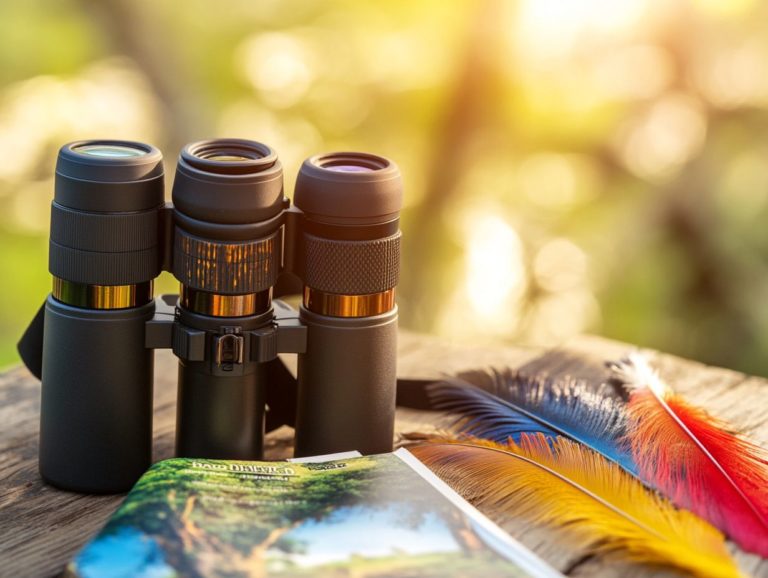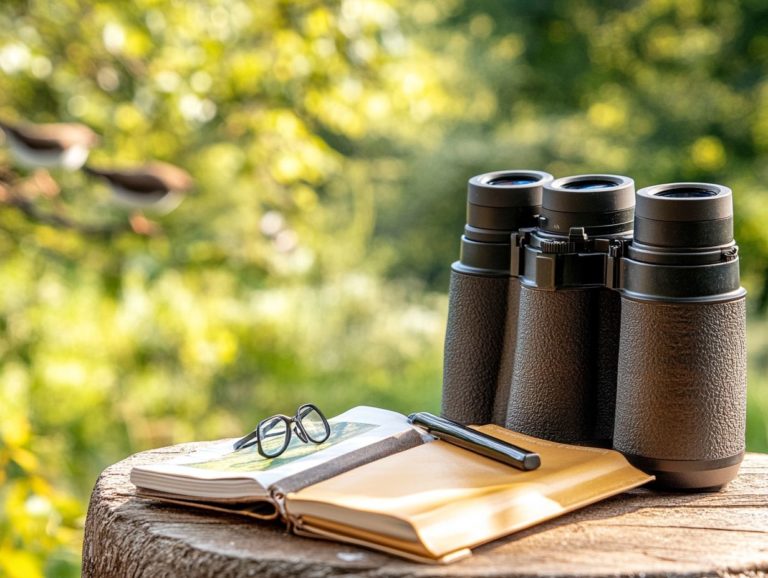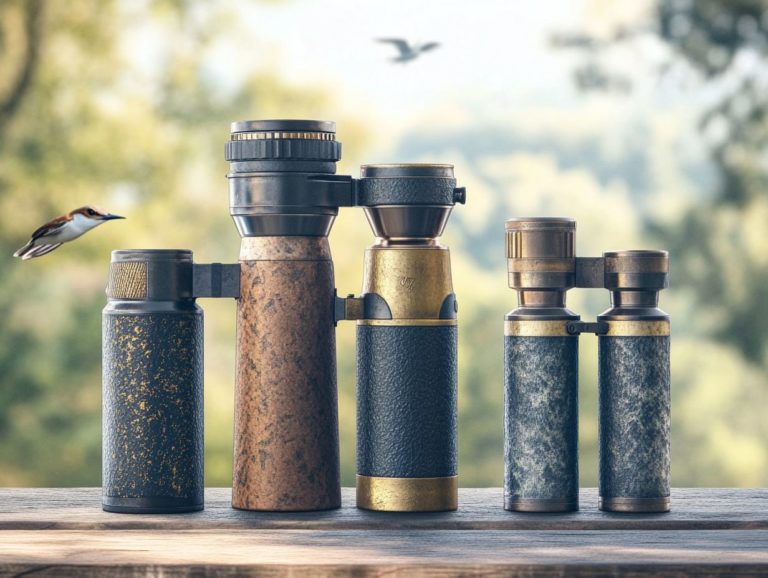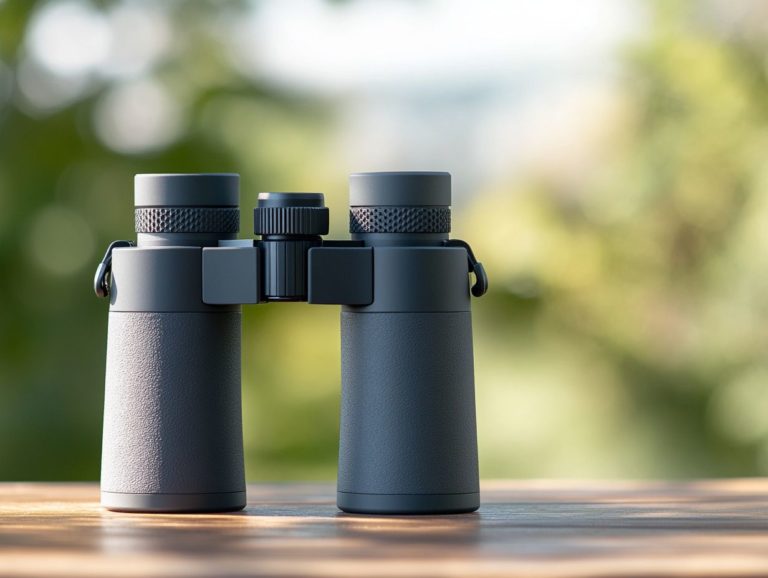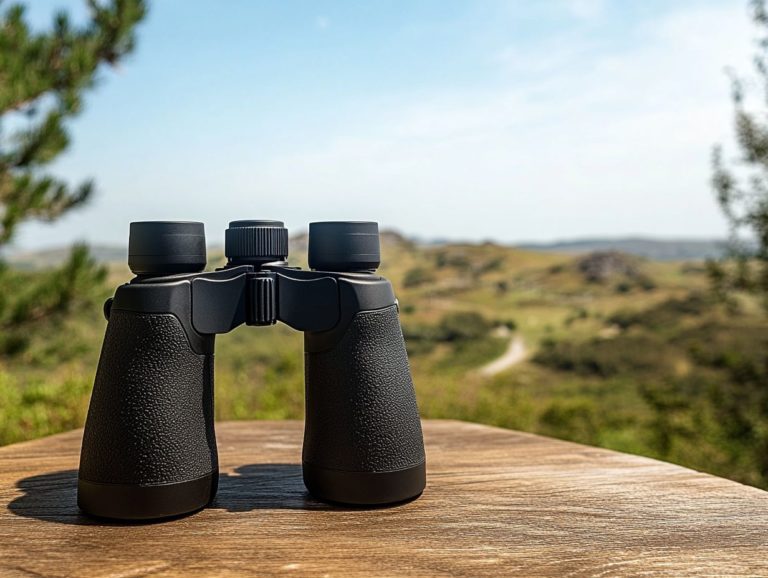Comparing Compact vs. Full-Size Binoculars
Selecting the right binoculars can truly enhance your outdoor adventures, whether you’re immersed in birdwatching, navigating a hiking trail, or cheering at a sports event.
This article delves into the essentials of binoculars, beginning with the fundamental features and terminology every user should be familiar with.
It examines the advantages and disadvantages of both compact and full-size binoculars, shedding light on their respective benefits and limitations.
Key factors to consider as you make your choice will be addressed, ensuring you discover the ideal pair tailored to your specific needs.
Contents
- Key Takeaways:
- Understanding Binoculars
- Pros and Cons of Compact Binoculars
- Pros and Cons of Full-Size Binoculars
- Factors to Consider when Choosing between Compact and Full-Size Binoculars
- Frequently Asked Questions
- What is the difference between compact and full-size binoculars?
- Which one is better for bird watching, compact or full-size binoculars?
- Do compact binoculars have the same magnification power as full-size binoculars?
- Are compact binoculars as durable as full-size binoculars?
- What is the price difference between compact and full-size binoculars?
- Which type of binoculars is more suitable for stargazing, compact or full-size?
Key Takeaways:
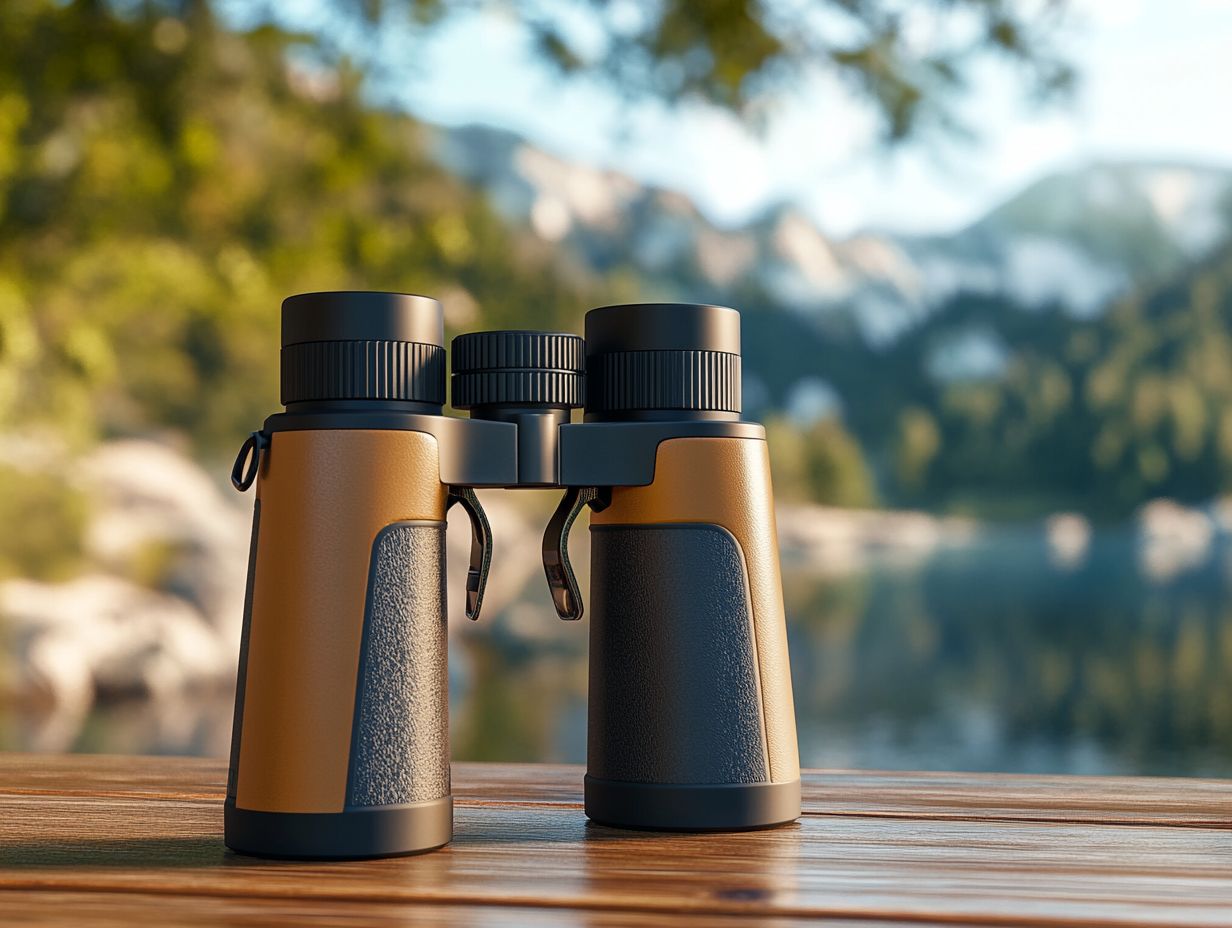
- Compact binoculars are lightweight and portable, making them ideal for travelers and hikers. However, they may have limited zoom level and field of view.
- Full-size binoculars offer better optical performance and are suitable for activities like birdwatching and stargazing. However, they can be bulky and heavy to carry around.
- When choosing between compact and full-size binoculars, consider your intended use, personal preferences, and budget. It’s important to test out different models before making a decision.
Understanding Binoculars
Understanding binoculars means recognizing the diverse options at your disposal, from compact models to full-size versions. Each is tailored for specific activities like birdwatching or outdoor adventures.
Your choice will largely hinge on factors like image quality, zoom level, and personal preferences, all of which significantly influence your viewing experience.
Key features like the size of the objective lens and their performance in low light are vital considerations in selecting the model that perfectly aligns with your needs.
Basic Features and Terminology
When looking into the world of binoculars, it s crucial for you to grasp the fundamental features and terminology, such as field of view, eye relief, and close focus capabilities. These elements significantly shape your overall experience.
A broader field of view allows you to scan landscapes with ease, making it a delight to take in the scenery. Adequate eye relief is vital for your comfort during extended observations, especially if you wear glasses.
Close focus capabilities enable you to observe nearby subjects in stunning detail imagine watching birds perched on branches or admiring the delicate petals of distant flowers in a garden. By understanding these aspects, you enable yourself to choose binoculars that elevate your viewing pleasure, ensuring clarity while minimizing eye strain.
Ultimately, the right combination of these specifications can transform an ordinary outdoor adventure into an exceptionally engaging experience.
Pros and Cons of Compact Binoculars
Compact binoculars present a wealth of advantages, such as their lightweight design, affordability, and superior portability. These features make them particularly suited for outdoor activities like birdwatching, where the ease of transport is crucial.
But remember, while compact models are convenient, they may not match the optical clarity and low-light performance of their full-size counterparts. Therefore, grasping both the benefits and limitations is vital for making a well-informed decision tailored to your needs.
Benefits and Limitations
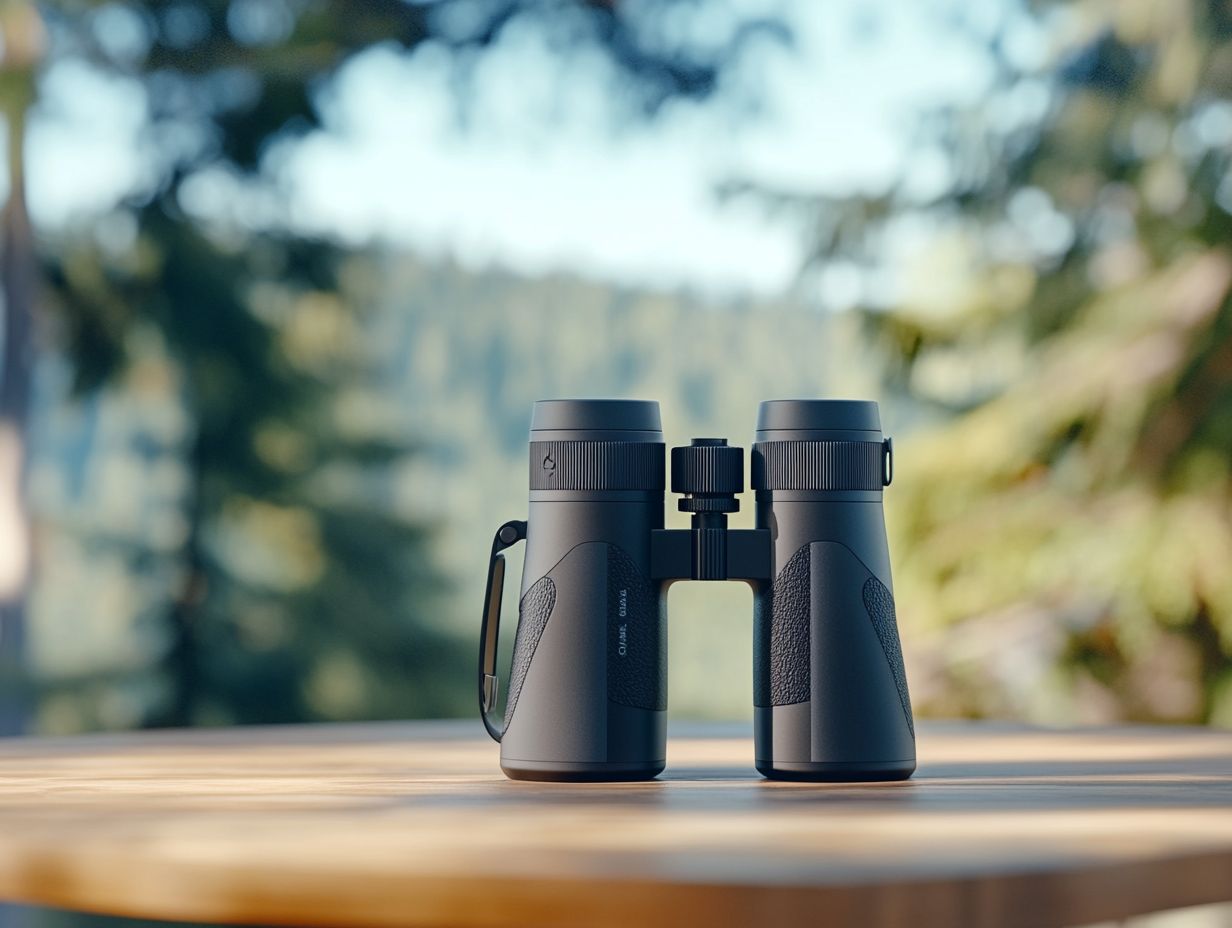
The benefits of compact binoculars are quite compelling. Their lightweight design makes them a breeze to carry during your outdoor adventures. They usually come at an attractive price point that appeals to budget-conscious consumers.
Compact binoculars also provide good image quality for casual viewing. Whether you’re a birdwatcher or a sports enthusiast, these handy devices let you get a closer look at your subjects without the bulk of larger models. However, it s important to note that these smaller options can sometimes fall short in terms of image brightness and clarity, especially in low-light conditions.
While you ll love the convenience of having compact binoculars for spontaneous outings, serious nature observers may find limitations in magnification and lens size a bit restrictive in more demanding environments, like forest trails or nighttime adventures.
Ultimately, your preferences will play a significant role in determining if the trade-offs between size and performance align with your specific viewing needs.
Pros and Cons of Full-Size Binoculars
Full-size binoculars are celebrated for their exceptional image quality and clarity, making them the go-to option for discerning birdwatchers and outdoor enthusiasts who value detail, particularly in low-light conditions.
With their larger lenses that gather more light and superior coatings, they typically deliver a premium viewing experience. However, their bulkier construction can be somewhat less convenient compared to more compact models.
Advantages and Drawbacks
The advantages of full-size binoculars are remarkable. They offer exceptional clarity and increased magnification power, enabling you to capture clear images from impressive distances. This truly elevates your birdwatching experience.
This enhanced viewing capability isn t just a boon for birdwatchers eager to see intricate details; it also greatly benefits nature enthusiasts who love exploring expansive landscapes.
However, it s crucial to remember that full-size models can be bulkier and heavier, which might affect their portability. If you enjoy hiking or casual outings, you’ll find compact binoculars more appealing, prioritizing convenience over sheer magnification.
While the quality of images generally improves with larger lenses, budget constraints can limit your options. It s essential to carefully assess your specific needs. By understanding both the advantages and limitations, you can make an informed choice that perfectly aligns with your personal preferences and intended use.
Factors to Consider when Choosing between Compact and Full-Size Binoculars
When deciding between compact and full-size binoculars, several key factors come into play. Consider your intended use, personal preferences, and the quality of images you require for outdoor activities.
It s also important to keep an eye on the price of various models available in the market, ensuring you find the perfect fit for your needs. Don’t miss out on the chance to enhance your viewing experience!
Intended Use and Personal Preferences
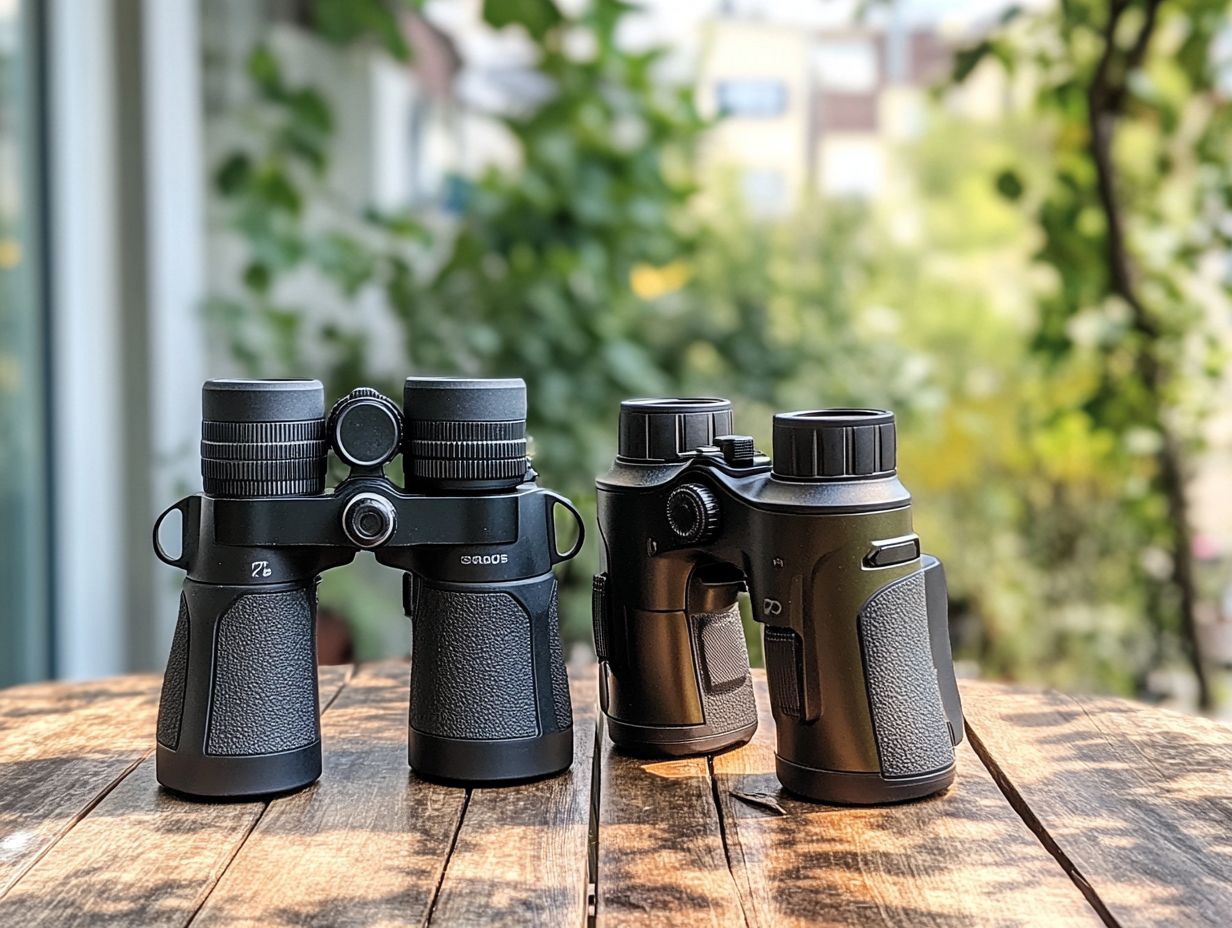
The intended use of binoculars plays a crucial role in your decision between compact and full-size models. If you’re a birdwatcher, you might prioritize portability. Others may focus more on image quality.
For instance, if you re an avid birdwatcher navigating dense forests or hiking trails, lightweight binoculars that fit snugly into a small bag are essential. This way, you remain agile and mobile. You’ll be ready to seize those fleeting moments in nature.
If you re attending sporting events, you might prefer full-size options that deliver superior magnification and clarity. This allows you to catch every exhilarating detail of the action from afar.
If you re an outdoor enthusiast captivated by stargazing, your priorities may lean towards image quality and how much you can see at once. You ll likely seek high-end lenses, which improve the clarity and brightness of images, enhancing your celestial observations.
Ultimately, understanding your personal needs and specific scenarios will guide you in selecting the ideal binoculars to complement your adventures. Don’t miss out on incredible views!
Final Thoughts and Recommendations
When choosing between compact and full-size binoculars, carefully consider your specific needs. Are you after a budget-friendly option that emphasizes portability, or do you desire a premium model that delivers exceptional image quality and top-notch glass quality?
It’s crucial to evaluate factors like your intended use whether you’re into birdwatching, stargazing, or catching the latest sports event. These activities will influence the features you require.
You might find yourself prioritizing lightweight designs for easy travel. Alternatively, you may opt for higher magnification and larger objective lenses for those intricate details.
Ultimately, discovering the right fit means striking a balance between performance, comfort, and budget. Engaging in thorough research, reading reviews, and even testing models in-store can significantly aid in making an informed decision that resonates with your personal preferences and elevates your overall viewing experience.
Frequently Asked Questions
What is the difference between compact and full-size binoculars?
Compact binoculars are smaller and lighter, making them more portable and convenient to carry. Full-size binoculars, on the other hand, are larger and heavier but offer better image quality and a wider field of view.
Which one is better for bird watching, compact or full-size binoculars?
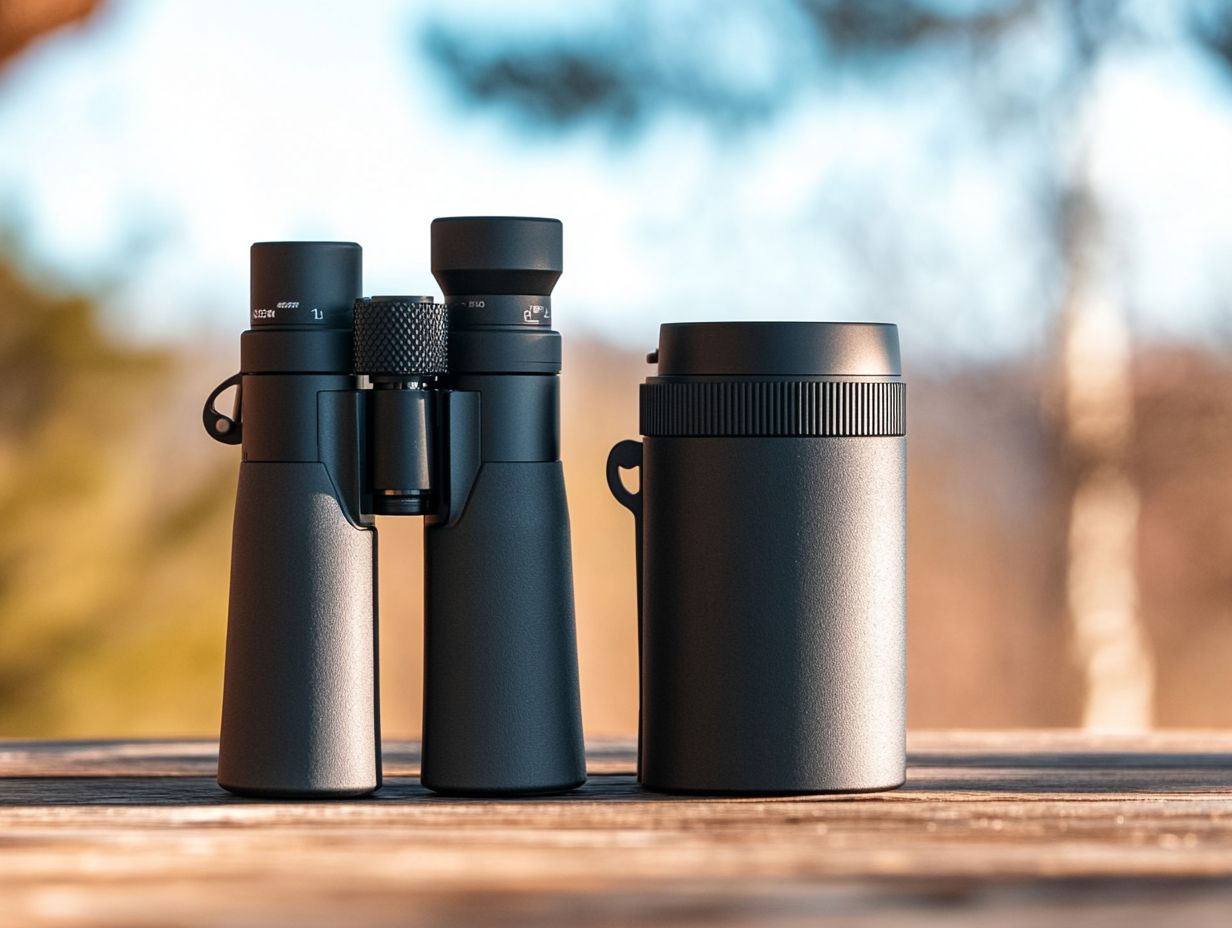
It depends on personal preference and your specific bird watching situation. Compact binoculars are better for short trips or when weight and size are a concern. Full-size binoculars are more suitable for longer trips and offer better optical performance.
Do compact binoculars have the same magnification power as full-size binoculars?
Not necessarily. The magnification power of binoculars depends on the combination of the objective lens size and the eyepiece. While some compact binoculars may have the same magnification power as full-size binoculars, others may have a lower magnification power.
Are compact binoculars as durable as full-size binoculars?
Compact binoculars are generally less durable than full-size binoculars due to their smaller size and lighter construction. However, some compact binoculars are designed to be rugged and withstand harsh conditions.
What is the price difference between compact and full-size binoculars?
Generally, compact binoculars are less expensive than full-size binoculars of similar quality. This is due to their smaller size and reduced production costs. However, high-end compact binoculars can be just as expensive as full-size binoculars.
Which type of binoculars is more suitable for stargazing, compact or full-size?
Full-size binoculars are more suitable for stargazing due to their larger objective lens size and higher magnification power. Compact binoculars may not provide enough light-gathering capability and magnification for an optimal stargazing experience.

